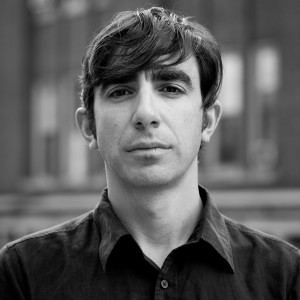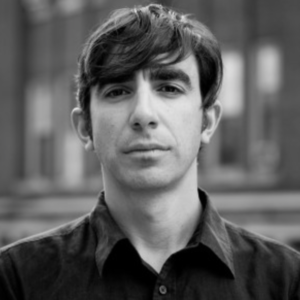Rediscovering Playful Production
DR. YOSEF BRODY holds a Ph.D. in Clinical Psychology from Long Island University-Brooklyn. A native New Yorker, he is now based in Paris where he teaches and works in private practice. He also curates a blog in which he posts underreported news & analysis related to socioeconomic injustice, human rights, and more. To check it out, click: here.
Rhyme & Reason, his monthly column for Seymour Magazine is an exploration of the creative process from a clinical psychologist’s point of view.
Rediscovering Playful Production
Should grownups be playing more?
Play — unrestricted, free, and imaginative — is desperately undervalued in modern society. Humans of all ages thrive by playing freely, but far too many of us suffer from a deficiency of play, often without realizing it. Play nourishes creativity and psychological health and, contrary to popular understanding, it can help us be more productive in adulthood.
By play, I don’t simply mean leisure; I mean independent, relaxed, creative production. At school and at work, we are too often forced to work within a set of strict guidelines, even when such restrictions are unnecessary. We are punished, and rewards are withheld, if we let our creative fantasies get the better of us.
How did we allow our natural tendencies for free play to become so stifled?
Within months of being born, children engage automatically in imaginative play, without any need for encouragement or assistance. As we grow and take on more responsibility, the relative value that we place on purposeful work normally increases…but does our need for play ever really go away?
In our culture, we are socialized to believe that, after a certain age, too much focus on play in everyday life is a sure sign of immaturity. “Child’s play,” we like to say. The word “adult” even has a connotation of being anti-play.
At the same time, we watch with admiration those we consider the luckiest grownups, whose boundaries between work and play are fluid and flexible; their work is their play and vice versa. We fall in love with rock stars and great athletes, with those who manage to achieve professional success through improvised play.
Yet most people don’t realize that luck is largely irrelevant to successfully approaching work as play. For some good tips on how to go about this, listen to the philosopher Alan Watts, who considered any rigid distinction between work and play to be irrational and counterproductive. Most of us mistakenly believe that our effectiveness and productivity will suffer if we play while we work, when the opposite is almost certainly true.
Play is natural, universal, and highly functional. Most fundamentally, it helps us to develop psychologically and builds the foundation of our creative selves.
The creative function of play has been written about by psychologists as diverse as D.W. Winnicott, Carl Rogers. and Susan Linn. They all essentially agree that the process of playful discovery is an indispensible path to original and meaningful ideas.
What does playful discovery mean?
It means reveling in adventurous thought and action without (too much) fear of evaluation, disobedience, or judgment. It means bridging the internal imagination with external reality and coming up with something meaningful.
Unfortunately, this natural process is normally blocked in favor of far more conservative interests. One of the primary functions of formal schooling is to systematically shut down playful discovery in favor of memorization, testing, and adult-direction. (In the most viewed TED talk of all time, Ken Robinson expanded on these out-of-whack priorities, arguing convincingly that, “If you’re not prepared to be wrong, you’ll never come up with anything original.”)
The situation is getting worse, not better, with increasingly regulated classrooms being the trend in recent years, at least in the United States. Tragically, children’s creativity has been declining in these more constrained educational environments, even as IQ scores have been going up.
The good news is that we know how to design environments which enhance human creativity rather than reduce it. Research has shown how creativity thrives in uncontrolled, non-evaluative environments, when free play is done for its own sake rather than for external approval or recognition. For example, children show more creativity over the long-term when they have caretakers with non-directive and non-judgmental parenting styles, and writers show more creativity when they are more focused on internal motivation rather than potential external reward.
Putting a high value on creativity means having a safe space to express yourself without concern about being wrong or judged. It means practicing getting your evaluating mind out of the way. It means deliberately letting go of learned technique, structure, and habit. It means making regular time to loaf and to daydream, feeling free to break the rules of what you’re “supposed” to do or think.
Later, with a bit more distance between you and your process of discovery, you can always go back and consider what worked for you and what didn’t. But in that moment of play and adventure, learning to ignore judgments and just be has a way of opening doors to infinite possibilities.
YB 2013
Published: January 8th, 2013




